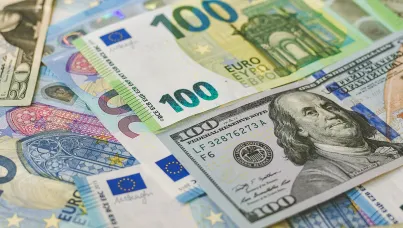Almost a quarter of the world’s women are not comfortable talking about menopause
How comfortable are we talking about menopause?
The research shows around half of people around the world are comfortable discussing menopause with friends (global country average of 53%). This makes it the least comfortable topic of conversation, among those listed, with people less comfortable discussing menopause than their own financial situation (54%), cancer (57%) and politics (61%).
The topics people feel more comfortable with, generally speaking, include age (83%), physical health (77%) and race/ethnicity (74%).
- Those in Great Britain and India are most likely to be comfortable discussing menopause (both 65%) while South Africa (53%) and Thailand (62%) also have high levels of comfort.
- Hungary is significantly less comfortable discussing the topic than any other country, only 22% are happy to talk about it, while South Korea are the second-most uncomfortable with just 39% feeling comfortable.
- Whilst 64% of women are comfortable to talk about menopause, almost a quarter (23%) are not. Men are even less comfortable with this topic with just 43% feeling comfortable on average globally.
Knowledge of menopause
- Whilst just over half of people around the world (53%) say they are knowledgeable about menopause, 40% are not, including one in three women (30%) and almost half (49%) of men. Only 66% of women are knowledgeable about menopause despite it being something they can expect to experience in their lifetime.
- People in India (76%), Indonesia (75%) and Turkey (75%) show the highest level of familiarity with menopause while Japan (37%), the Netherlands (41%) and Mexico (42%) are least likely to be knowledgeable on the subject.
Perceived value of men and women over 50
- Almost four in ten (38%) say employers value men over 50 more than women of the same age, only one in ten (10%) believe more value is given to women over 50.
- Around a quarter see more value put to men over 50 than women over 50 by people generally (26%), the government (25%) and the media (24%). Meanwhile, just over one in ten say women over 50 are valued more (11%, 12% and 13% respectively).
- Women in the survey said they perceive men over 50 as more valued in all categories, especially by employers (43% women vs 34% of men) and people generally (30% women vs 22% of men).
Perceived value of those over and under 50
People are significantly more likely to say they value those under 50 than those over 50. More than half say employers value under 50s more, while only one in ten (10%) believe over 50s are valued more, similarly only 9% say brands value over 50s more (43% say they value younger people more).
- Four in ten (41%) say advertisers value people aged under 50 more than older generations with only 10% believing value is placed more on over 50s by advertisers.
- Just over a third see more value put on under 50s by the media compared to 13% the other way around, while similar proportions (31% vs. 15% respectively) say the same for people generally.
- Opinion is split when it comes to government, with around three in ten (28%) say they put more value on those under 50, one in five (19%) say the value is put on over 50s and just over a third say they put the same amount of value on both groups.
About the study
These are the results of a 33-country survey conducted by Ipsos on its Global Advisor online platform. Ipsos interviewed a total of 23,008 adults aged 18-74 in the United States, South Africa, and Turkey, 20-74 in Thailand, 21-74 in Indonesia, and 16-74 in 26 other markets between Friday, July 22 and Friday, August 5, 2022.



